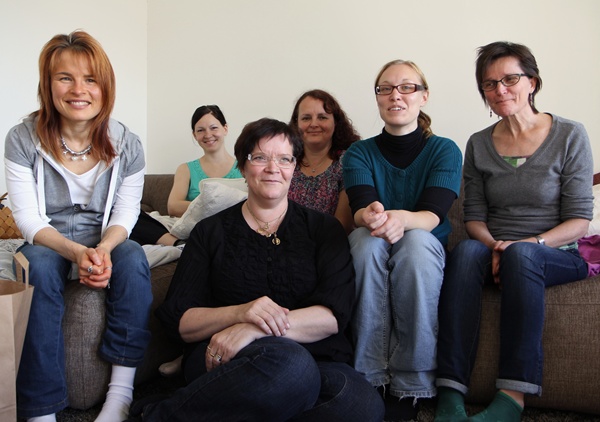Jarkko Päivärinta
Archiving Sensitive Data on Mental Health Rehabilitation
Rehabilitation of Client-centeredness in Community-based Mental Health Young Adults 2010-2012 was a research project investigating outpatient rehabilitation of Finnish young people diagnosed with schizophrenia. The project was led by Professor Kirsi Juhila at the University of Tampere and funded by the Finnish Funding Agency for Technology and Innovation (TEKES). One of the main aims was to study a new model for mental health rehabilitation involving cross-sector cooperation, how client-centeredness was implemented in the model, and in what way the cooperation across sectors benefited clients.
Large amounts of qualitative data were collected during the research, containing different kinds of interaction, such as team meetings and individual and group interviews. The data have been archived at the FSD and are available for research purposes in Finnish.
Archiving allows the stories of participants to be heard
In the interviews, the young clients openly explored their illness, its development and their rehabilitation. In the group interviews and team meetings, the clients' histories were discussed on a very personal level. The sensitive nature of the data made the research team carefully weigh the benefits and risks of archiving. After discussions with the data archive, the team was convinced that confidentiality of the research subjects would be preserved. "Our first reaction was naturally that archiving such data for reuse would be impossible. However, it soon became clear re-users would be bound by the same ethical principles as we had been and the data would not be openly accessible. The knowledge that long-term preservation would be ensured also tipped the scale in favour of archiving," recalls researcher Sirpa Saario.
Saario says that, in addition to wanting to preserve the data, the team also wanted to enhance reuse. She points out that such rich data have much more potential for analysis than one team can exhaust.
One basic problem of archiving is the overprotective attitude researchers often have towards research subjects. This tends to happen even in cases where the subjects themselves would like to make their voices heard among a larger group of researchers. Kirsi Juhila and her team had to consider archiving also from this viewpoint. "As participation was voluntary, there was a reason why the young people attending rehabilitation wanted to tell their stories. They do not necessarily want to be identified, but we do have a duty to make their stories available. As we see it, if we interview them and then hide the data somewhere where it cannot be used, this is ethically wrong. They wanted to tell their stories, they wanted to be heard," researcher Kirsi Günther says.

Anonymisation and permissions
When the data were archived, direct identifiers were removed. Furthermore, re-users of data have to pledge themselves to protect the anonymity of participants in publications based on the data. Because of the sensitive nature of the data, permission to use it must be obtained from the research team. "We study for what purpose the data will be used, ask for the research plan and if possible, prefer to meet the researcher personally," Professor Juhila says.
From the FSD viewpoint, it is always possible to change the terms of use of an archived dataset at a later stage, if the original researchers think it appropriate. Making the access procedure easier does not weaken confidentiality protection.
Changed funder policies
Research funders increasingly request that grant applications include a data management plan and recommend that data collected through their funding be archived. The Academy of Finland led the way in this policy change. Even though the funding for the Juhila-led project came from TEKES, the new policy of the Academy affected the team’s decision on archiving. Kirsi Juhila takes a positive view of the change in funder policies: "I think archiving is good. In my view, the stupidest thing in traditional practices was to promise the participants that qualitative data would be destroyed after the research was completed. I've never been able to understand that," she says.
Even though Professor Juhila has long taken potential archiving into account when asking consent from research subjects in her research, the decision to archive the data generated in this project was made only after the project was completed. In her future projects, she aims to take archiving into account more seriously now that that the first inroad into archiving has been made. She is already leading a new research project and the data collected will be archived.
More information on the data series
Community-based Mental Health Rehabilitation of Young Adults 2010-2012